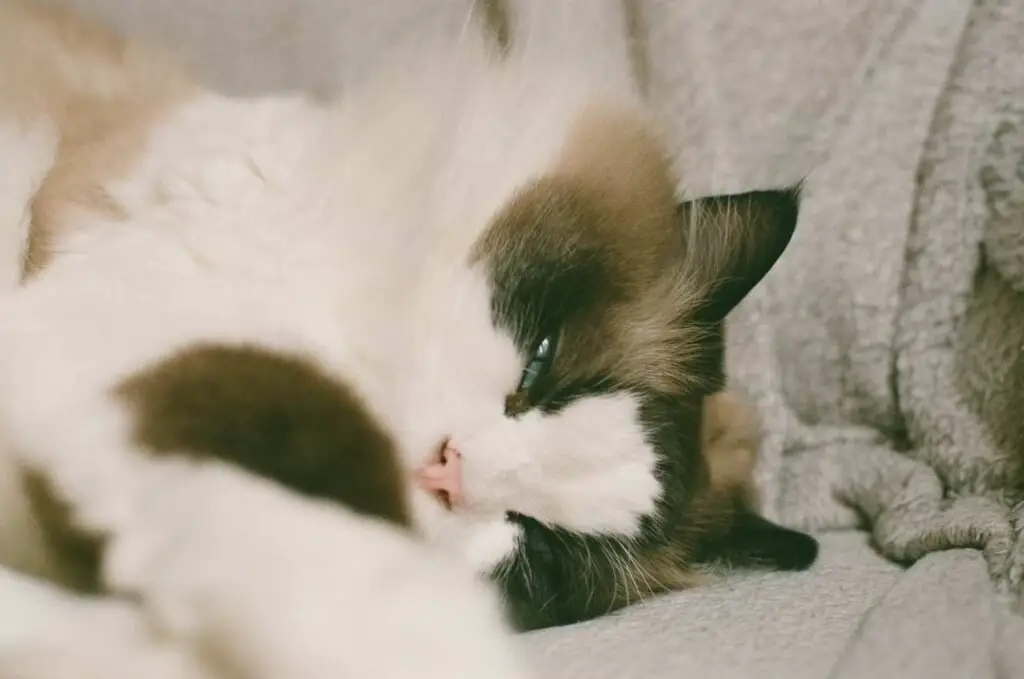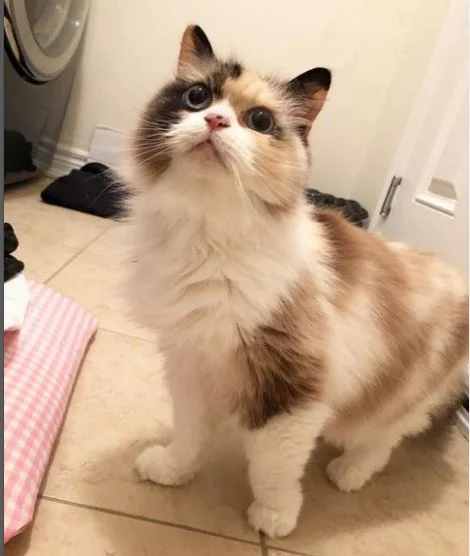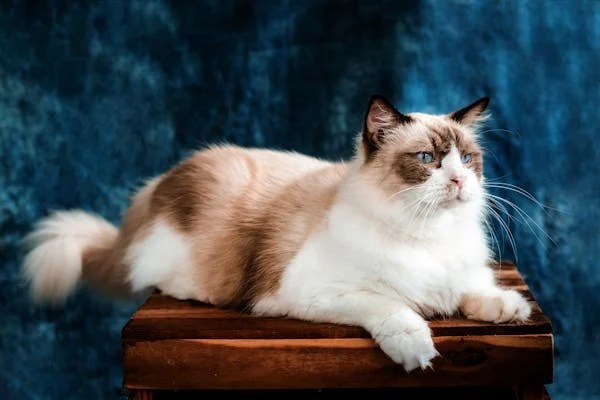Ragdoll cats are one of the most beloved and popular cat breeds due to their gentle, affectionate personalities and striking appearance. With their silky coats, striking blue eyes, and large, muscular bodies, Ragdolls quickly win the hearts of anyone who meets them. Known for their “puppy-like” behavior, these cats love following their owners around, snuggling, and interacting with the family.
However, while Ragdolls are incredibly affectionate and sociable, they do come with a few challenges. They require a significant amount of attention, are prone to certain health conditions like hypertrophic cardiomyopathy (HCM), and may struggle with separation anxiety if left alone for long periods. Additionally, their large size and grooming needs can require more care than other breeds.
This guide will explore the pros and cons of owning a Ragdoll cat, helping you decide whether this lovable breed is the right fit for your home and lifestyle.
What Are Ragdoll Cats?
Ragdolls are a relatively modern breed that was developed in the 1960s by a breeder named Ann Baker in California. The breed is a cross between a white Angora-type cat and several other domestic cats, producing kittens with striking blue eyes, semi-long fur, and a gentle temperament. Their name, “Ragdoll,” comes from their tendency to go limp when picked up, as if they were a soft, floppy toy—this behavior is unique and endearing.
Pros of Owning a Ragdoll Cat
More Affectionate and Social
Ragdolls are one of the most affectionate cat breeds. They are known for their loyalty to their owners and are often described as “puppy-like” in their desire for companionship. Unlike many other cat breeds that prefer independence, Ragdolls thrive on human interaction and want to be part of the family. They follow you from room to room, greet you at the door, and happily curl up on your lap for a snuggle session.
Ragdolls are natural lap cats. They love being held, carried around, and cuddled, making them excellent pets for people who enjoy having an affectionate companion.
They tend to form strong bonds with their owners, and their affectionate nature extends to everyone in the household, including children, making them excellent family pets.

They Are Great with Children and Other Pets
Ragdolls are known for their calm and tolerant nature, which makes them an excellent choice for families with children. They typically don’t mind being handled roughly, as long as they aren’t harmed, and they’re very patient with kids who may not always be gentle. Their non-aggressive nature also makes them great companions for other pets, whether they’re dogs or other cats.
Ragdolls tend to get along well with other animals. They usually integrate easily into homes with multiple pets and can adapt to the presence of dogs, other cats, or even smaller animals like rabbits or guinea pigs.
Ragdolls are one of the few cat breeds that can tolerate energetic and sometimes rough play from young children. However, it’s always important to teach children how to handle pets gently.
They Require Low Grooming
Ragdolls shed less than other long-haired breeds, but like all cats, they still shed. Regular brushing helps reduce the amount of hair in your home and prevents the development of mats.
Ragdolls don’t require frequent bathing like some other long-haired breeds. Their coats are naturally less oily, meaning they generally remain clean with minimal maintenance.
Intelligent and Playful
Ragdolls are highly intelligent and curious cats. They love interactive toys, games, and activities that engage their minds. Ragdolls are one of the few cat breeds that can be trained to walk on a leash, fetch, or even perform tricks like sitting or shaking hands. Their playful nature ensures they will entertain you with their antics, and they will keep themselves amused with puzzle feeders, toys, and games.
Good with Visitors and New Environments
Ragdolls are typically very social with strangers. Unlike some more reserved or territorial breeds, they welcome guests and will happily greet anyone who enters the home. This makes them good companions for people who frequently have visitors or who want a cat that is adaptable to new environments and situations.

Cons of Owning a Ragdoll Cat
Health Concerns and Lifespan
While Ragdolls are generally healthy, they are prone to a few genetic health problems. As a responsible pet owner, it’s crucial to be aware of these potential conditions and ensure that your cat receives regular veterinary care.
Hypertrophic Cardiomyopathy (HCM): This heart condition is common in Ragdolls and can lead to heart failure if left untreated.
Joint Issues: Due to their large size, Ragdolls can suffer from joint problems, including hip dysplasia, which can affect their mobility as they age.
Obesity: Ragdolls are prone to obesity because they are relatively inactive and have a tendency to overeat. Obesity can lead to a host of health problems, including diabetes and joint stress.
Ragdolls have an average lifespan of 12-15 years, though some can live longer with proper care. It’s important to be prepared for their long-term health needs.
They Are Emotional Dependency
While Ragdolls are incredibly affectionate and loving, this also means they are emotionally dependent on their owners. If left alone for extended periods, they can become anxious, destructive behavior, excessive meowing, or even refuse to eat. Ragdolls are not the best breed for people who work long hours or are away from home frequently.
Size and Space Considerations
Due to their large size, Ragdolls require more space than smaller cat breeds. They need room to move around comfortably and may not be the best fit for people with limited space, like in small apartments. Their large size also means they eat more and may require larger beds and other accommodations.

Regular Grooming Needs
Though Ragdolls have less grooming maintenance than some other long-haired breeds, their coats still require care. Regular brushing (once a week) will help to prevent tangles and reduce shedding. If left untended, their fur can become matted, particularly around the underarms and hind legs.
While their fur doesn’t mat as easily as some other breeds, it’s still important to keep an eye on their coat and brush them regularly to prevent tangles and mats, especially during shedding seasons.
Ragdolls also require regular nail trimming, as their nails can grow long and sharp. Regular grooming helps to prevent these issues.
Is a Ragdoll Cat Right for You?
Ragdoll cats are a wonderful choice for families and individuals who are looking for an affectionate, gentle, and playful companion. Their sociable nature, intelligence, and low-maintenance grooming make them ideal for many pet owners. However, potential owners must consider the breed’s emotional dependence, health risks, and space needs before deciding.
Ideal Ragdoll Owners:
- People with plenty of time to devote to their cat.
- Families with children or other pets.
- Individuals or couples who are looking for a loving, laid-back companion.
With the right care and attention, a Ragdoll can be a loyal and loving member of your family for many years. If you’re prepared for their grooming needs, health care, and emotional requirements, you’ll find a Ragdoll to be one of the most affectionate and rewarding pets you could ever own.

Hey guys, My name is Simon Smith. I’m from Canada and live near Victoria
I live with my sweet family and have 20+ Ragdolls of different types. I love them as my children. My profession is as a hotel manager.
I love to keep Ragdolls and grow their breeder case. I have 7 years of experience.
I’m an expert in cat care. So, I’m here to provide you with new information about my cats daily. This is my blog website, so I request that you kindly visit our site daily.
If you’re a Ragdolls lover and you have any questions or confusion about cats, text me on the Contact Us page or Gmail.
Thank u
